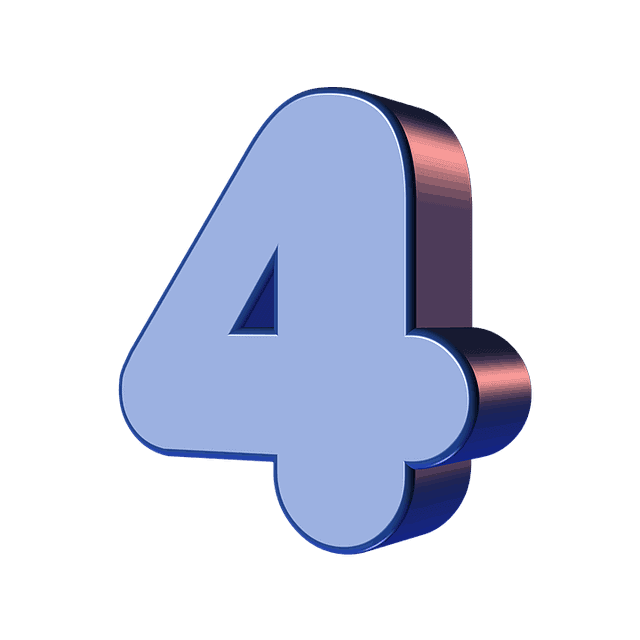MRCGP & GP Training
The Main Page
DOWNLOADS
path: MRCGP IN GENERAL
The components of the MRCGP
I’ve developed these pages because many trainees and trainers find the RCGP site a bit to overwhelming (and quite frankly, a bit boring). So, I hope these pages are easier to read, easier to understand, provide you with lots of help tools and make the learning a bit more interesting. I’ve also weaved in some real experience from both trainees and trainers so that you can learn from the mistakes of others. And of course, if you have any suggestions, comments or improvements to suggest, please add them via the comments box at the end of this or any other BradfordVTS page.
The first thing to say about the MRCGP is that it consists of three parts. AND ALL PARTS HAVE EQUAL IMPORTANCE. The three parts are:
- The AKT exam (a multiple choice type paper)
- The CSA exam (an OSCE style exam)
- Work Place Based Assessment (WPBA)
A lot of trainees think that if they get their AKT and CSA – they will get through GP training without any problem even if their WPBA is a bit rubbish. TOTALLY WRONG. WPBA is as important as the rest. One component of WPBA is the ePortfolio – and for instance, if that is a bit rubbish and you don’t look after it, then you could be given an extension. Do you want to take that risk

What is each testing?
AKT
- Applied Knowledge Test
- Machine marked test (driving theory test centres)
- held several times a year - click the icon
- Not just clinical medicine (stats, organisation etc)
- Many GP-focused questions - hence more likely to fail if done in a hospital ST2 post.
- Best take towards end of 1st post ST3 year
The AKT is basically testing how good your knowledge is – not just clinical, but also medical statistics, evidence based medicine, and organisation stuff too (like understanding how the NHS works, the different forms, the different mental health sections and so on).
CSA
- Clinical Skills Assessment
- OSCE type exam held several times a year - click the icon
- held several times a year (in local driving theory test centres)
- take when in final ST3 year. Not too late and not too early. end of ST3-1 or early ST3-2.
The CSA is an exam which tests your clinical skills through testing your data gathering skills (=history & examination) and your clinical management skills. It’s also tests your communication skills with the patient (referred to as you Inter Personal Skills). A lot of trainees think the CSA is just about communication/interpersonal skills – but that’s wrong. It’s about both clinical and communication skills.
WPBA
- Work Place Based Assessment
- several components, all recorded via ePortfolio
- things like CBDs, COTs, CEXs, MSF, PSQs, CSR, ESR
- also includes log entries, projects and other things in your ePortfolio (eP holds it all together!)
- as important as AKT/CSA; click the icon
- if you leave it late, you cannot make up for it later.
WPBA hast lots of components (like video and case based assessments, supervisor reports, patient and colleague feedback just to name a few) and it tests lots of things. Basically, in GP training you are tested against 13 Professional Competency areas. These 13 competencies define exactly what it takes to become a good GP. Therefore, Professional Competencies are the things which YOU must provide EVIDENCE for to SHOW that you are good at in order to become a GP. Different components of the WPBA assess different parts of these 13 Professional Competency areas. In fact, many of them overlap – there are several WPBA components that overlap in what they are testing – and this is important for triangulation purposes. Triangulation is a technique that helps validate your performance in a professional competency through cross verification from two or more sources. I’m sure you’ll agree this is important. In summary, the WPBA components are TOOLS to help you show that you’re good enough to become a GP. Can you see why they’re important as the exams?
4 Key Points

1. RESPONSIBILITY
It is the responsibility of the trainee to ensure that they complete the appropriate assessments and build up a record of their training and evidence of competence AT THE APPROPRIATE TIMES through the e-portfolio. It will be you who tells your trainer/supervisor when you are ready to do a specific type of assessment (not the other way around). Do not expect your trainee or Educational Supervisor to remind you or check whether you have done the right number of assessments – that is your responsibility. Qualified GPs have to do all sorts of things in their lives – and they don’t have someone to remind them. They have to find a system for themselves. Likewise, you must do the same.
Whilst the process is trainee led, it will be supported by your Educational Supervisor. There are 6 monthly reviews throughout training at which your progress will be reviewed and actions agreed. Loads of different things happen in parallel throughout the 3 years. So plan now to avoid last minute panic
2. NEEDS FURTHER DEVELOPMENT (NFD)
Please do not see ‘needs further development’ as a failure. We EXPECT you to have quite a few ‘needs further development’ especially if you are in ST1 or ST2. If we do see all “competent” or “excellent” grades being given at the S1/S2 stage, as educators, we tend to not regard them highly (and we get more worried than if you had been given NFD) because how can you have no learning needs at such an early stage in your GP training. If you’re competent or excellent at everything – then surely there’s no point in even doing a GP training scheme. Do you see where I am coming from?
3. HOSPITAL CONSULTANTS
Some of your hospital colleagues may not be that familiar with what they are doing in the assessments. After all, they’ve been trained up to be the hospital specialist that they are. Of course, they’re going to be very good at assessing their own specialty trainees who are training up to be what they are. But the question is, how can they assess a GP trainee against criteria that define what it is to be a good GP – when they have never been a GP? It’s a good question – and the reality is that often hospital consultants and their GP assessments are not as robust or valid as that done by GP trainers.
In many regions, they are being trained up though. Whilst they are being trained up, we would urge you to get a good understanding of how the assessments work and what each domain or competency means so that you are empowered to help your consultant. In this way, we are sure that your hospital colleagues will get the hang of them in no time and it will really help you to get the best out of them. So, please help them to help you.
4. THE RCGP WEBSITE
The RCGP website is your essential resource for all the latest information and guidance. It is being continually updated, therefore if it says anything different from what’s on this website: believe the college! www.rcgp.org.uk
Quick MRCGP Tips
Understand Professional Competencies
The Professional Competencies are basically a set of areas you are measured against. Nearly everything you do in GP Training is mapped to these 13 PCs. So, getting a real good understanding of them is crucial to you achieving them!
2 quick things...
>>Teaching, Mentoring and Clinical Supervision means the teaching the trainee has has been involved with and/or delivered, NOT the educational experiences which they have received.
>>Organisation, Management & Leadership in General Practice means organisational management, NOT the clinical management of patients.
Understand the theory behind Reflection
One of the big things that ARCP panels and Educational Supervisors will assess are your learning log entries that you record in your ePortfolio. Those learning log entries must show evidence of performance as well as learning. But learning cannot happen without reflection. Therefore, understanding Reflection is a key thing to writing good learning log entries.
Read a consultation book in ST1
Reading a book on Communication and Consultation Skills will really help you harness the power of effective communication in gathering clinical information quickly, making good decisions, and explaining things to patients in a way that is acceptable to them. Communication skills also help you enormously when things go wrong. Unless of course you love getting patients shout and swear at you! Jokes aside, a communication skills book is not only instrumental to helping you develop your consultation skills but also helps with the COT assessments and CSA exam preparation.
Do your QIA project in ST1
The ST1 year will probably be one of your more easier years where you have time and space to gradually get to know everything that is required of you.
This is the ideal time to be doing a Quality Improvement Activity (QIA) project. Ask your trainer for some advice. Don't leave it til ST3 (because you'll have lots to do, including exams) and in ST2 it's almost impossible with busy hospital shifts.
Don't do AKT or CSA too early
AKT - should ideally be done ST2-2 (i.e. the second post of ST2) or even better if at ST3-1. CSA should be done at ST3-1 or ST3-2.
It's actually up to you when you want to do these exams. However, it seems sensible to us to do both roughly at the same time. You will need the AKT knowledge stuff for the CSA exam anyway. So - why do CSA 12 months after your AKT exam - only to have to learn all that stuff again!
If it was me, I would do AKT in ST3-1 and CSA in either ST3-1 or early ST3-2 at the very latest.
Remember in hospital, you're a GP trainee
When trainees start their hospital post rotations, they quite rightly focus on the particular specialty that are working for. But what trainees often do is to forget all about General Practice and forget they are training to be GPs!
So, we are NOT asking you to lessen your enthusiasm for learning about a particular specialty. But instead, in each of your specialty posts think about the things that will serve you well as a GP.
- So, yes – practice your consultation skills.
- So, yes – learn about managing heavy menstrual bleeding in O&G rather than going to theatre to do Caesarians.
- So, yes – perfect your examination technique and get your mandatory CEPS done in hospital rather than waiting in GP.
Remember your eP, write in it often
Your ePortfolio (eP) is one of the main things that is used in all your assessments like ES and CS meetings, and ARCP panels.
So it is right that you should pay a lot of attention and respect to it. Write things carefully - concisely - to demonstrate evidence - to show learning - rather than lengthy write ups of mindless waffle. And get at least the minimum number (although you should aim for twice the number) of things like CBDs, COTs and CEXs done in a timely way.
Read other sections of this website
And finally, there are tonnes of other things on this website. We have over 1000 resources. But please don't feel overwhelmed. You have 3 years to dip in and out of this website and learning things gradually and in a relaxed way.
The purpose of this site is to demystify GP training and use easier language than the RCGP website to help explain things in a more meaningful and practical way.
And of course, there are tonnes of things like help sheets and training material that you simply cannot find elsewhere. It's all free too!


